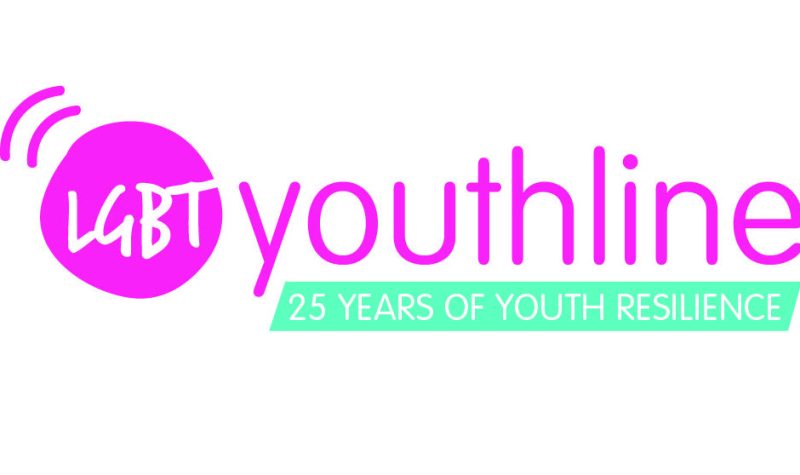LGBT YouthLine is gearing up to release their Do Better Report which offers recommendations to fill gaps in Ontario’s support of 2SLGBT youth. In an interview with CJRU, Executive Director Berkha Gupta shares their “by youth, for youth” approach, the pandemic’s impact on LGBT YouthLine services and more.
“At YouthLine, our work is really about supporting young people to create the programs and the spaces that they want,” Gupta explains.
LGBT YouthLine has been serving Ontario youth for the last 25 years. The organization creates peer support spaces and runs community-based initiatives. Gupta adds that LGBT YouthLine has the same helpline phone number as when they started. This means that any pamphlet, no matter how dated, is able to direct individuals to their current work. While their original number is intact, technology has advanced over the years and LGBT YouthLine has been evolving with it. For the last 10 years, the organization has also operated chat and text support to reach youth online.
The pandemic has led to another moment of change and LGBT YouthLine has been adapting their resources. Their team has been operating LGBT YouthLine channels from home for almost a year now. Gupta says they’ve scaled back their support to online options but will be re-launching their helpline in March. In the meantime, dialing the helpline will lead to a prerecorded message encouraging callers to visit their website for support.
The volunteers on the LGBT YouthLine side of these resources are peers, not counsellors. They’re trained active listeners and have experience navigating many of the issues facing 2SLGBT youth. In their latest annual report, mental health and isolation are listed as top issues discussed on the helpline. As feelings of isolation heighten during the pandemic, younger youth are top of mind for Gupta.

LGBT YouthLine Executive Director Berkha Gupta. Photo courtesy of LGBT YouthLine
“The few spaces that youth might have to slip out to a support group, or an after school program, or even the informal networks that youth often have to hang out with .. have all been put on hold or not possible. So a lot of the ways that youth are able to feel a sense of community and feel a sense of connection has been stripped. And this is for youth that even have that [space] to begin with,” Gupta says.
Throughout the pandemic YouthLine has been focusing their energy on the Do Better report. The report will be released in February and offers recommendations based on research gathered in 2020.
Earlier in 2021, LGBT YouthLine was also removed from the Toronto Catholic School Board’s (TCDSB) mental health resource list. Though they are reinstated now, the series of events garnered attention from mainstream media which is rare for the organization.
In their Jan. 12 statement, the TCDSB announced that LGBT YouthLine was removed because there was “online content deemed inappropriate for school-aged children available through third-party resources” from the LGBT YouthLine website. Community members were quick to respond online. Supporters expressed concern around this classification of inappropriate content, impact on educators and the message that it would ultimately send to TCDSB students.
“For young people, the lack of a resource or an addition of a resource really shows how an institution is thinking about their inclusion… As communities who are often erased or forgotten, or put on the sidelines, conversations like this make people go ‘Hey, are people showing up for me?’ ‘Is my school system showing up for me?’” Gupta says.
In this case, LGBT YouthLine received an outpouring of support from the local community and within the school board. But Gupta says that each student interprets this series events differently. Some may find it comforting and some may be reminded that they are in a positions where people must fight for them. TCDSB released a follow up statement on Jan. 25, announcing that they’ve spoken to LGBT YouthLine, reinstating them on their resource list. The board also communicated that they’re developing a LGBTQ+ resource page for students.
Gupta hopes that LGBT YouthLine entering the mainstream will mobilize people and draw more attention towards their upcoming Do Better report, especially the recommendations dedicated to educators and school systems.
To hear more from Berkha Gupta, listen to the interview below.


